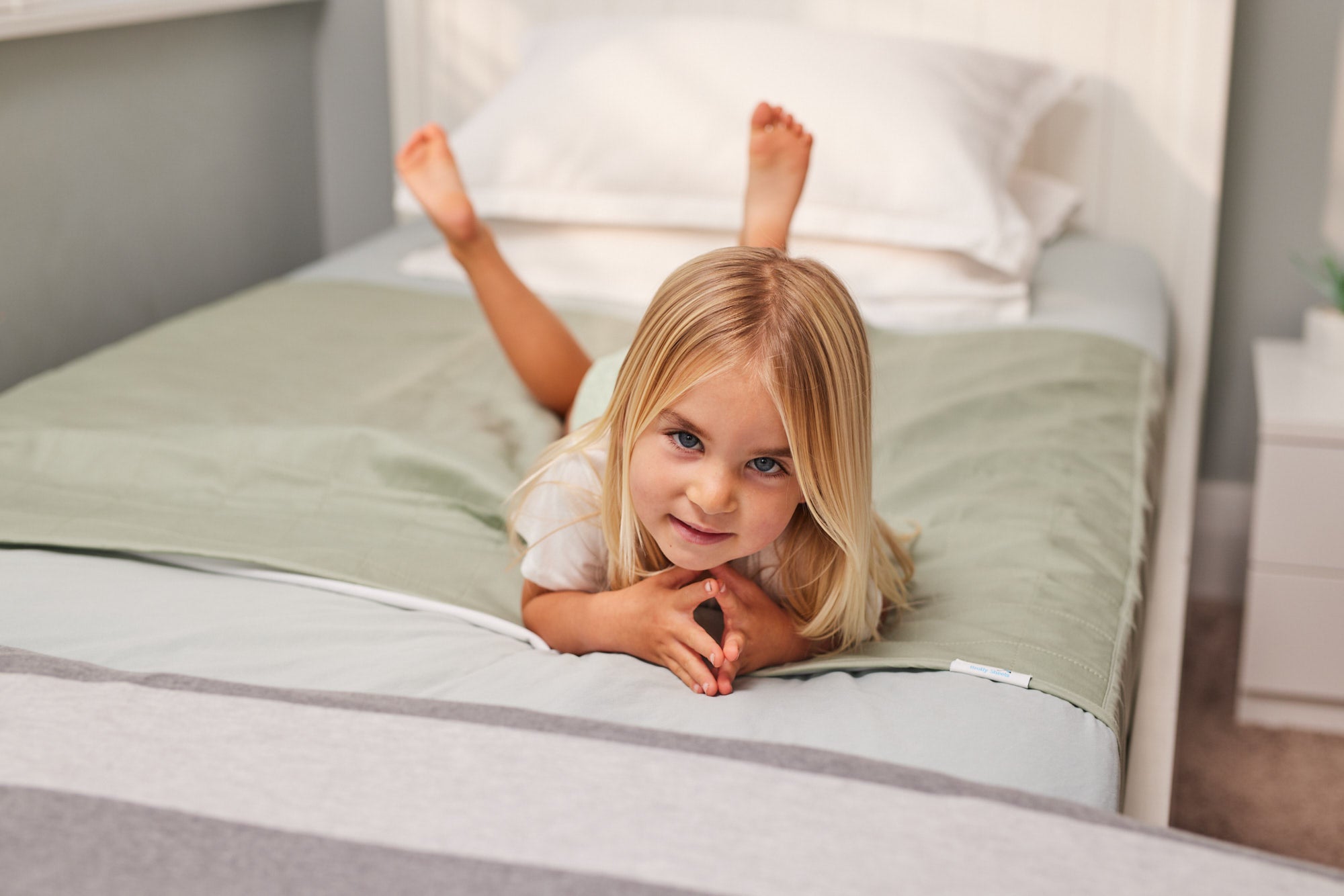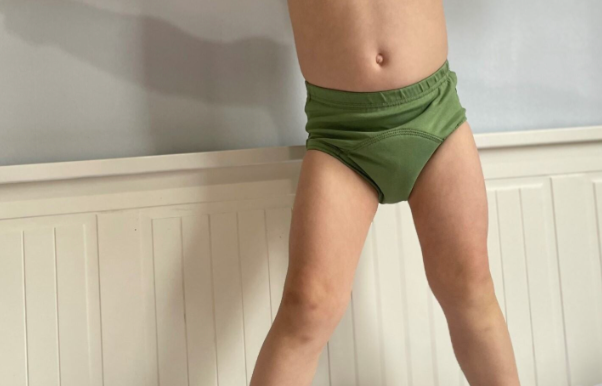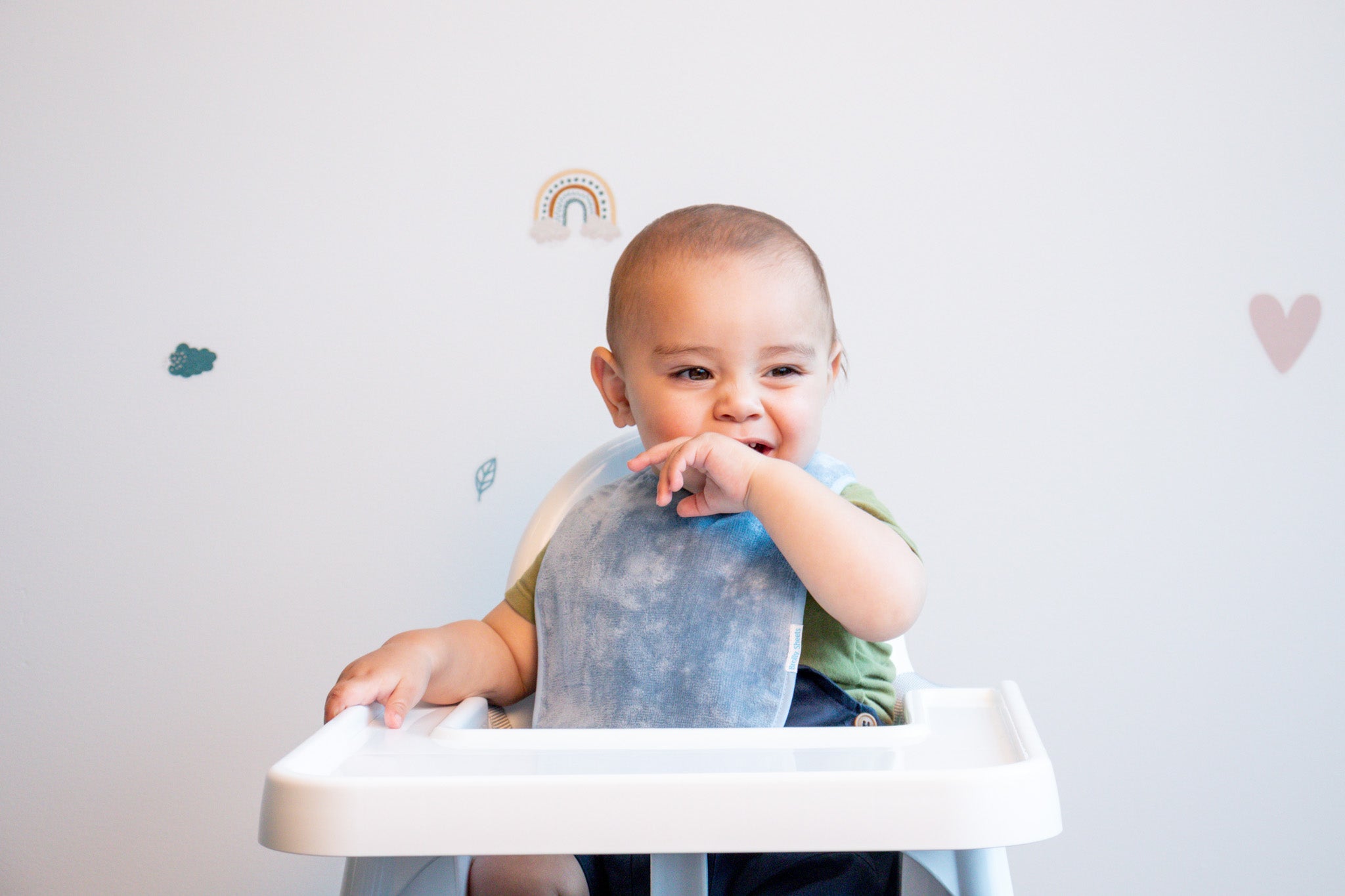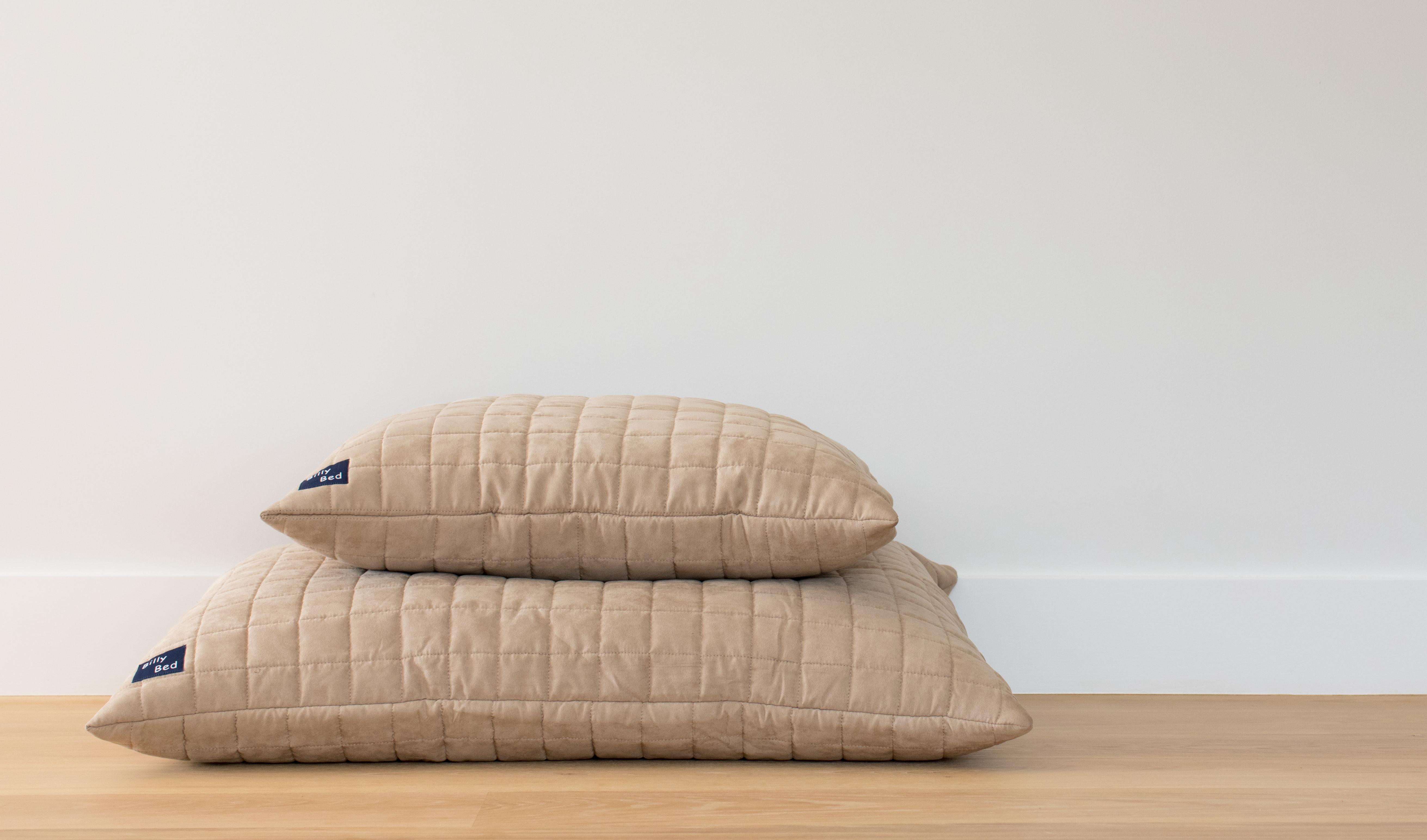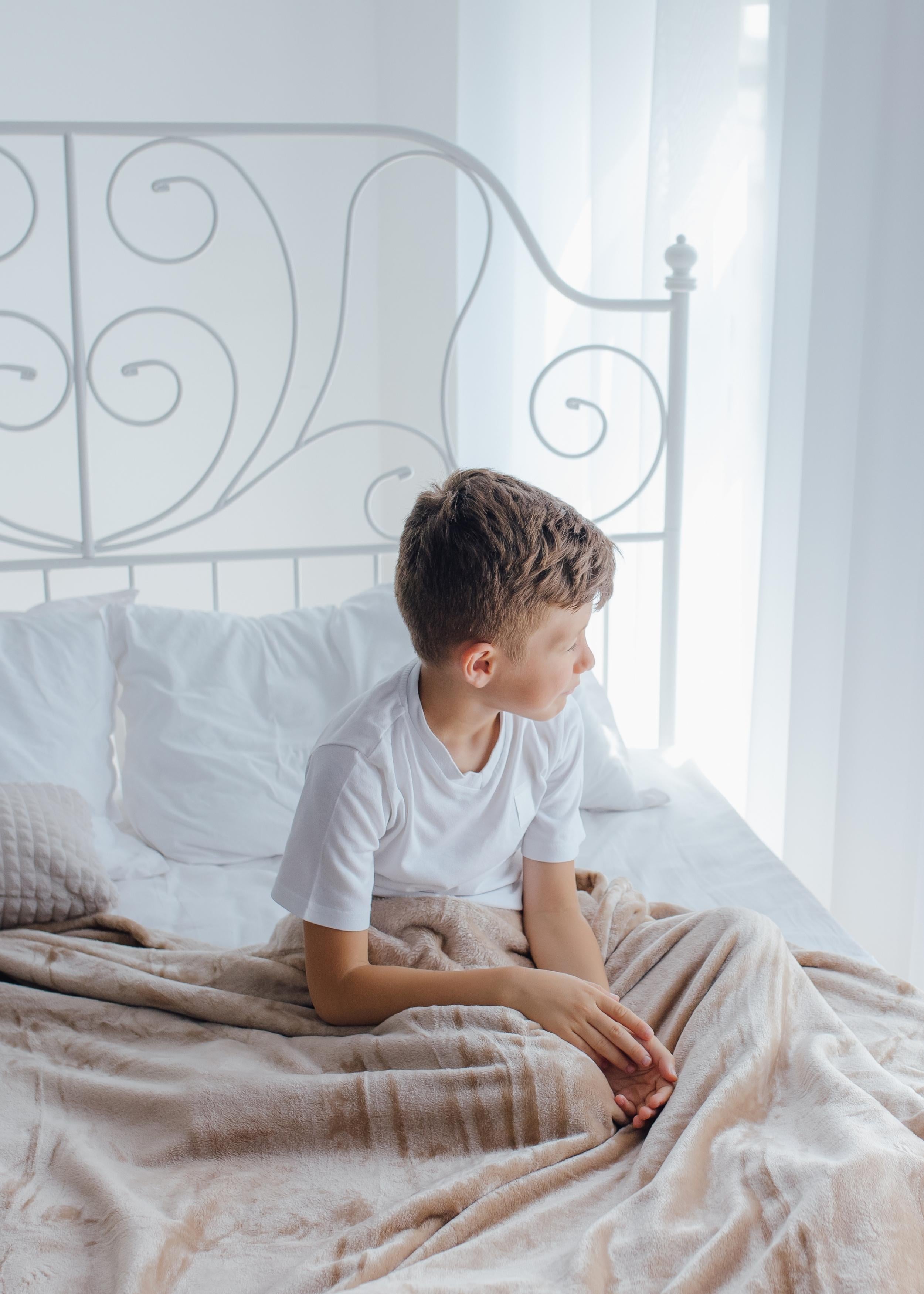
Wet Beds Again Now School Has Started?
If your child has started bed-wetting after a long period of being dry, this can be quite common at the start of a new school year. Starting school can be a source of anxieties or stresses that can suddenly trigger bed wetting. Plus they may just be very tired with a full busy day in the heat of summer.
There are a few reasons why your child may wet the bed, with some solutions at the end of this post.

Your Child Doesn’t Wake Up In The Night.
Starting school your child may be overtired and just not getting the signal from their brain that wakes them up when their bladder is full and needs to be emptied. This may have been fine in the past, but with starting school or going back to school, they may be more tired than normal and just not waking up. Otherwise, they may be worried about school and so not sleeping well and again, being overtired. Finding out the reason is a priority, (it could be social, bullying, or just a new place and new people) but whilst you do that, a bed wetting alarm can help as the alarm wakes up the child and they gradually learn the signals from the brain to start waking themselves up. It is also important that now school has started, to get back into a routine of a regular bedtime and one that isn’t too late.
Their Bladder Can’t Stretch Enough
If the bladder is restricted, then it won’t have enough space to stretch when it fills with wee. This means it may empty earlier during the night than if there were more room. Constipation can cause this as if their bowel is full of poo it can press into the bladder and limit space for wee.
It could be that your child is avoiding going to the toilet at school which can lead to constipation and bladder problems such as a UTI. (Urinary Tract Infection). It is surprising how many children do not want to use the school toilets and there is more on that below.
It is likely this secondary enuresis (begin wetting after being dry for a long period), will settle down as they grow used to life at school or get back into school routines. It is still important to check with your doctor to rule out any underlying physical causes including constipation and UTIs.
How You Can Help?
Stop drinks an hour before bedtime.
If your child is drinking plenty during the day – they shouldn’t need a big drink before bed. Plus make sure they do a big wee before bed. When your child does have a drink, choose what they drink carefully. Avoid giving your child caffeinated drinks as caffeine increases the body's urge to wee.
Make it easy to get to the toilet at night.
A night light is a great idea for giving your child confidence to get up in the night. Or else leave on a hall light or the toilet light.
Give your child enough to drink during the day.
Not always easy to monitor when they are at school. Let’s face it – kids are busy and sometimes just plain forget to get a drink. Maybe set up a competition to see if they can drink two bottles of water a day. Have a star chart to tick off, make it into a game. Or have a big glass of water with breakfast and when they get home from school to make up for not drinking much at school. Restricting drinks during the day will not help a child be dry at night and if it causes constipation – it could make it worse.
Don’t be cross with your child.
This can be easy to do as you get tired with more washing and broken night’s sleep, but remember – no one wants to wake up in a wet bed. It is out of their control and you being annoyed isn’t going to help at all. Get some Brolly Sheets so you can easily change their wet bed – or if they are a bit older, they can change the Brolly Sheet themselves. This can really help as an older child will get some independence and the feeling he is at least in control of changing his bed.
Bed wetting alarms
If your child is a heavy sleeper a bed wetting alarm can help. There is a sensor worn in the pyjamas or underwear which sounds an alarm when wet. The idea is they wake your child once they start to wee so they don’t fully wet the bed and they can get to the toilet to finish the wee. When the alarm goes off, they clench their sphincter automatically and over time they do not need the noise, but the feeling of a start of a wee is enough to wake them up. It is called conditioned learning.
Alarms are loud- they are designed to wake a deep sleeper and you as the parent will need to get up to ensure your child wakes up and goes to the toilet to finish the wee. Then they need to reset the alarm and go back to bed. So – they do take some work – but have fabulous results – you can check out all our reviews online to see what you think. We publish both the good and the bad.
i. Check out the reviews on our wireless alarm here
ii. Check out our reviews on our wired alarm here
The difference between the two is cost and convenience. Like all wireless technology, it is much simpler to use but comes at a higher cost due to a higher level of technology.
School toilets
It is interesting how many kids do not drink during the day because they do not want to use the toilet. You could start a general conversation just asking what the toilets are like at school and they may say why they don’t like using them.
New school – with littlies go with them and do a practice run. Even if they are not so little, a new school can be a scary place with different toilets and rules about when you can use them. Go with your child to the school bathroom to practice locking and unlocking the stall door or to see if the flushing noise is scary. This can desensitise an anxious child so they feel more comfortable. You can also talk to the teacher to find out if there are rules about when they can go and what they need to tell the teacher. Some kids need to know the process before they will raise a hand and ask to go. If your child is older ask an older sibling of a friend or talk to the teacher about the rules before they start.
Find out what they do not like about the school toilets:
1. Is it the smell,
2. The different toilet paper - it may be thin and scratchy.
3. The ways the doors lock? They won’t be used to having to lock a door and some kids have a fear of being trapped inside.
There are many reasons and so sitting down and having a chat with your child will help understand what the problem is, then you can start to find a solution.
It may help to go to as many public toilets as you can so they can see toilets come in lots of different styles, different ways to dry their hands, different toilet paper holders (toilet paper may not come out as easily as a roll at home), different soap dispensers etc.
Urinals and sons. Your son at home may drop his pants to the floor when he is using the toilet, where at school older boys using a fly will see this as a reason for laughter. After all – all boys will laugh when they see a bare bottom. Teaching them to use a urinal is also important if this is what your school has. Maybe get dad to go with him to check them out.
Books On When To Go To The Toilet
Book on how their body works can really help them understand why it is important to go to the toilet when their bodies tell them they need to go.

You can check out our Brolly Sheets (to make changing a wet bed at 2 am a breeze) here and our bed wetting alarms here.


